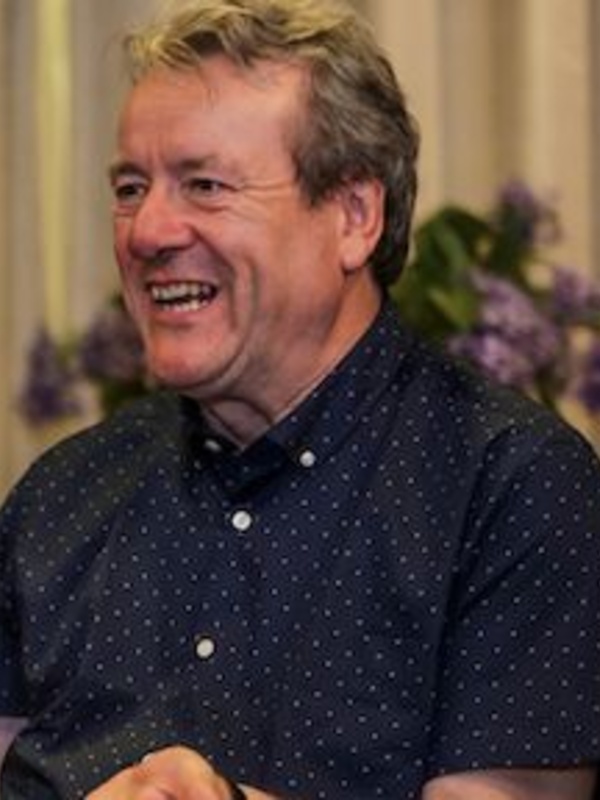Professor Ian Roberts
- Professor of Linguistics

Contact
Connect
About
Professor Roberts’ research is in theoretical linguistics, more specifically in comparative syntax. His work is set against the background assumptions argued for by Noam Chomsky: that there exists a specific human cognitive capacity for language which is present at birth and requires simple environmental stimulation in order for linguistic competence in the mother tongue to develop during the early years of life. The theory of this capacity is known as Universal Grammar. Accepting this nativist approach to language raises the challenge of accounting for the existence of seemingly very diverse grammatical structures in the languages of the world. Professor Roberts’ work, along with that of a very active worldwide community of linguists, is concerned with showing how these grammatical systems differ along relatively simple lines in such a way that the central distinguishing features are accessible to children acquiring language on the basis of primary linguistic data. To this end, he has worked on the comparative and historical syntax of many of the Germanic, Romance and Celtic languages. In 2011-17, Professor Roberts held a European Research Council Advanced Grant funding a project whose goal is to investigate a specific hypothesis as to the way in which the grammatical options made available by Universal Grammar are organised. Refining and testing this hypothesis involves looking at languages from all over the world, and assessing the extent to which certain patterns recur.
Research
Research interests
- Syntax
- Language Typology and Cognition
Research interests:
Comparative and Historical Syntax.
Recent research projects:
“Rethinking Comparative Synax” (ReCoS), European Research Council Advanced Grant, 2011-17.
“Giving Voice to Digital Democracies: The Social Impact of Artificially Intelligent Communications Technology” Centre for Humanities and Social Change, University of Cambridge.
“Extending Parametric Comparison” Cambridge Humanities Research Grant, 2020-21
“Reconstructing Proto Indo European Syntax through Parametric Comparison” Cambridge Humanities Research Grant, 2021-22.
Published works:
Roberts, I. 2021. Diachronic Syntax. Oxford: Oxford University Press. 2nd edition.
Roberts, I. 2019. Parameter Hierarchies and Universal Grammar. Oxford: Oxford University Press.
Roberts, I. 2018. Comparative and Diachronic Syntax. London: Routledge (Routledge Leading Linguists Series).
Sheehan, M., T. Biberauer, A. Holmberg & I. Roberts. 2017. The Final over Final Condition: A Syntactic Universal. Cambridge, MA: MIT Press.
Roberts, I. 2017. The Wonders of Language, or How to Make Noises and Influence People. Cambridge: Cambridge University Press.
Biberauer, T. & I. Roberts. 2015. The Clausal Hierarchy, Features and Parameters. In U. Shlonsky (ed) Beyond Functional Sequence: The Cartography of Syntactic Structures, Volume 10. Oxford: Oxford University Press, 295-313.
Roberts, I. & J. Watumull. 2015. Leibnizian Linguistics, in Angel Gallego and Dennis Ott (eds) 50 years later: reflections on Chomsky, MIT Working Papers in Linguistics 77:211-222.
Biberauer, T. & I. Roberts. 2015. Rethinking Formal Hierarchies: A Proposed Unification. Cambridge Occasional Papers in Linguistics 7:1-31.
Biberauer, T., A. Holmberg, I. Roberts & M. Sheehan. 2014. Complexity in comparative syntax: the view from modern parametric theory. In F. Newmeyer & L. Preston (eds) Measuring Grammatical Complexity. Oxford: Oxford University Press, pp. 103-127.
Holmberg, A. & I. Roberts. 2014. Parameters and the three factors of language design. In C. Picallo (ed) Linguistic Variation in the Minimalist Framework. Oxford: Oxford University Press.
Roberts, I. 2014a. Taraldsen’s Generalisation and Diachronic Syntax: Two Ways to Lose Null Subjects. In P. Svenonius (ed) Functional Structure from Top to Toe: The Cartography of Syntactic Structures, Volume 9. Oxford: Oxford University Press, pp. 115-148.
Roberts, I. 2014b. Syntactic Change. In A. Carnie, D. Siddiqi & Y. Sato (eds) Routledge Handbook of Syntax. London, Routledge, pp. 391-408.
Roberts, I. 2014c. Subject clitics and macroparameters. In P. Benincà, A. Ledgeway & N. Vincent (eds) Diachrony and Dialects: Grammatical change in the dialects of Italy. Oxford: Oxford University Press, pp. 177-201.
Aboh, E., M.-T. Guasti & I. Roberts. 2014. Locality. Oxford/New York: Oxford University Press.
Biberauer, T., A. Holmberg & I. Roberts. 2014. A Syntactic Universal and its Consequences. Linguistic Inquiry 45:169-225.
Roberts, I. 2014. The Mystery of the Overlooked Discipline: Modern Syntactic Theory and Cognitive Science. Revue Roumaine de Linguistique 58:151-178.
Watumull, J., Hauser, M., Hornstein, N. & I. Roberts. 2014. On Recursion. Frontiers in Psychology 4:1017.
Teaching and supervision
Supervisor of:
Zepu Zhang
Fanghua Zheng
Elena Isolani
Yiyang Guo
Fangning Ren
Liu Yang
Ema Banerjee
Course contact for:
Li9: Syntax
